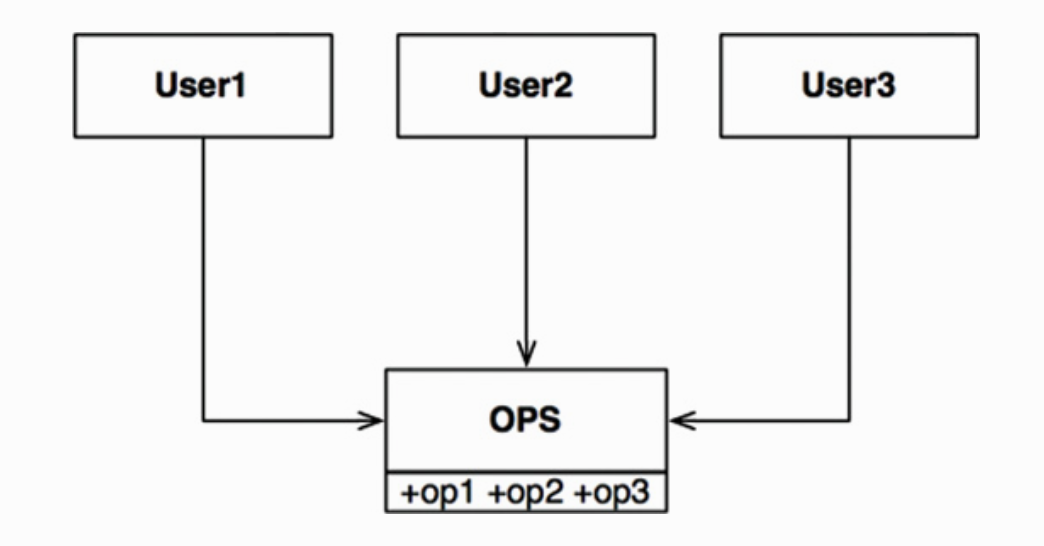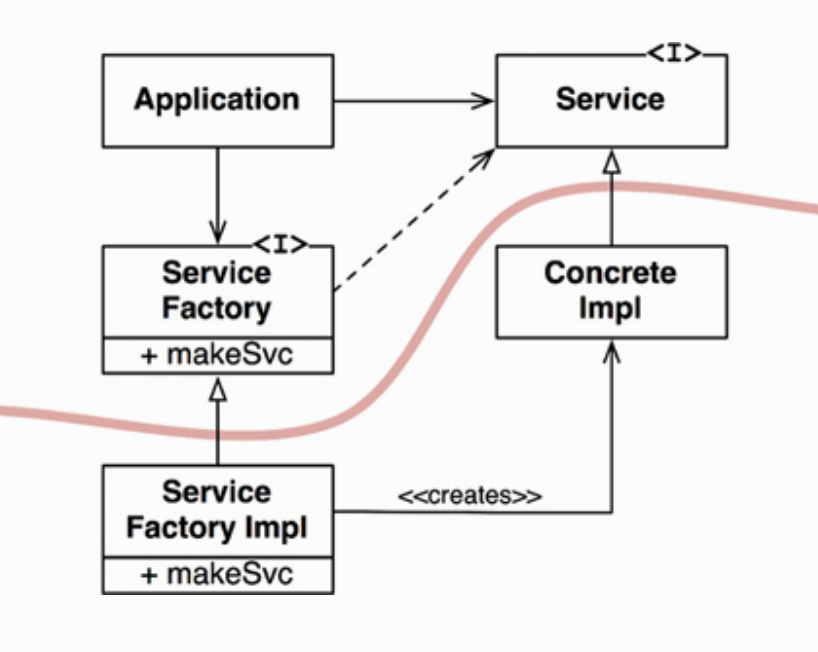这次我们将简单学习一下著名的SLOLID设计原则。
单一责任原则(The Single Responsibility Principle)
1 | “A module should have one, and only one, reason to change.” |
Never change a same source file for different reasons, for different purpose.
开闭原则(The Open Closed Principle)
1 | “A software artifact should be open for extension but closed for modification.” |
- 系统里的每个模块之间的关系一定要是单向的(unidirectional)
- 如果你不想因为B模块的改动而去修改A模块,那么B模块应该依赖于A模块。
- 软件构架的根本就是把一个系统分割为不同的模块,并且保护核心逻辑组件不会因为低层的细节模块的改动而被修改。
里氏替换原则(Liskov Substitution Principle)
1 | What is wanted here is something like the following substitution property: If for each object o1 of type S there is an object o2 of type T such that for all programs P defined in terms of T, the behavior of P is unchanged when o1 is substituted for o2 then S is a subtype of T. |
当你在使用一个类的时候,你可以放心的使用而不需要关心其衍生类的不同。所有的衍生类必须符合使用者所期待的基类的行为。
接口隔离原则(Interface Segregation Principle)
1 | Clients should not be forced to depend upon interfaces that they do not use. |

在这个设计里,user1只会使用op1但是却要依赖于整个ops。当任意一个op的方法改动时,所有user被迫从新编译和部署。

在这个新的设计里,每个user只依赖于自己的方法,并且ops保留了原有的所有功能。
依赖倒置原则(Dependency Inversion Principle)
1 | A. High level modules should not depend upon low level modules. Both should depend upon abstractions. |
A. 高层模块不应该依赖于低层模块,二者都应该依赖于抽象。
B. 抽象不应该依赖于具体实现细节,而具体实现细节应该依赖于抽象。

在这个例子中,高层的Application只依赖于抽象的Service和抽象的ServiceFactory。当Factory的具体实现和Service的具体实现发生改动的时候,Application并不需要发生变化。